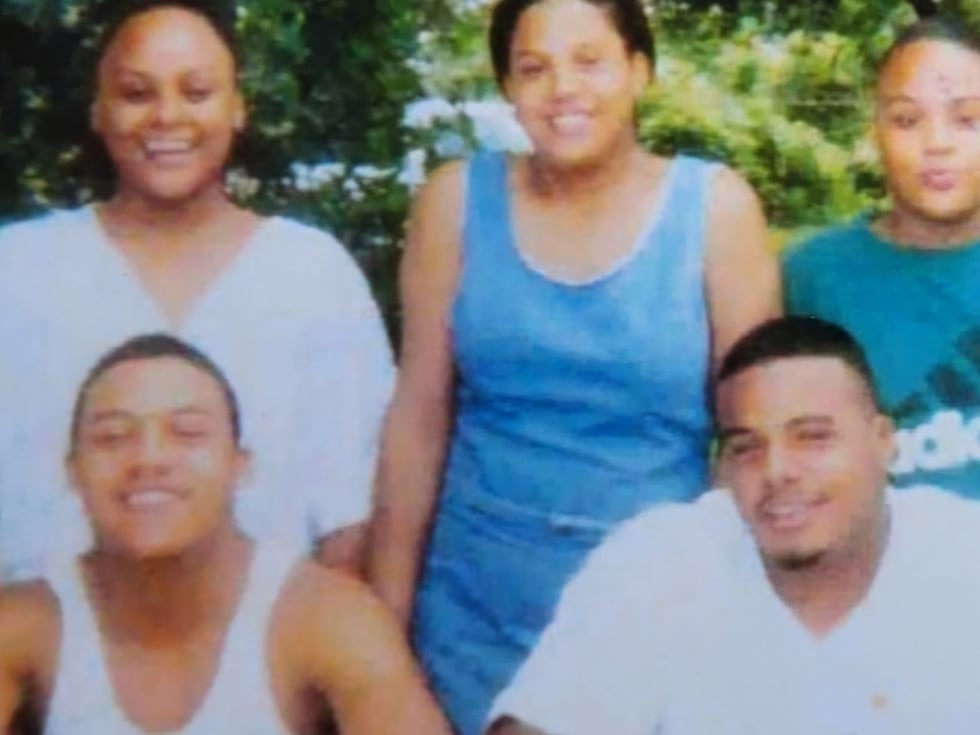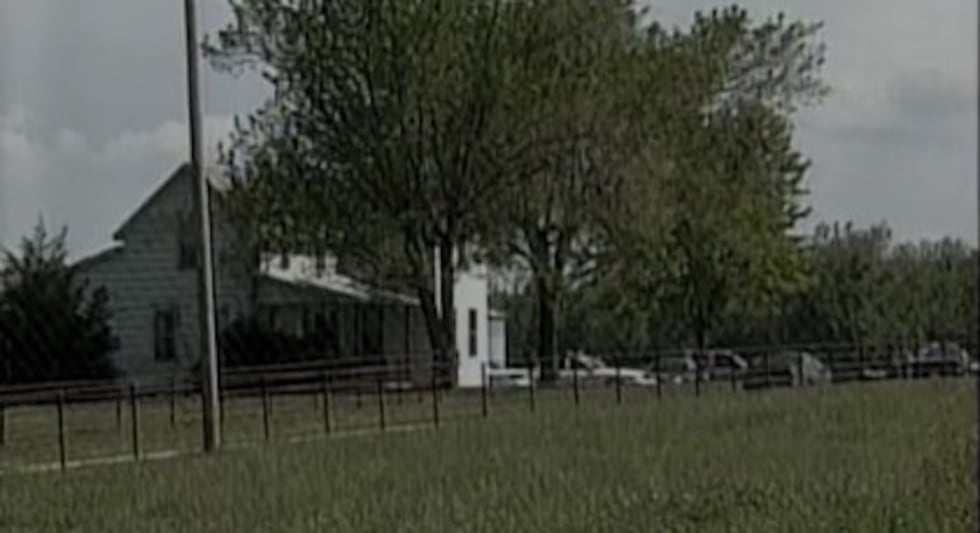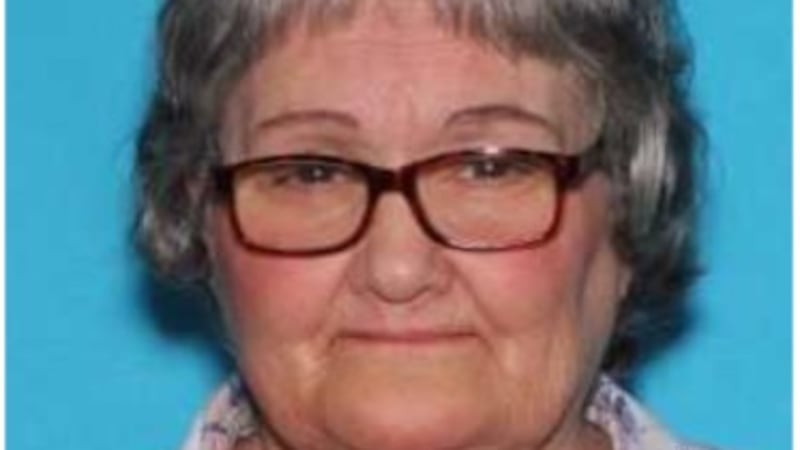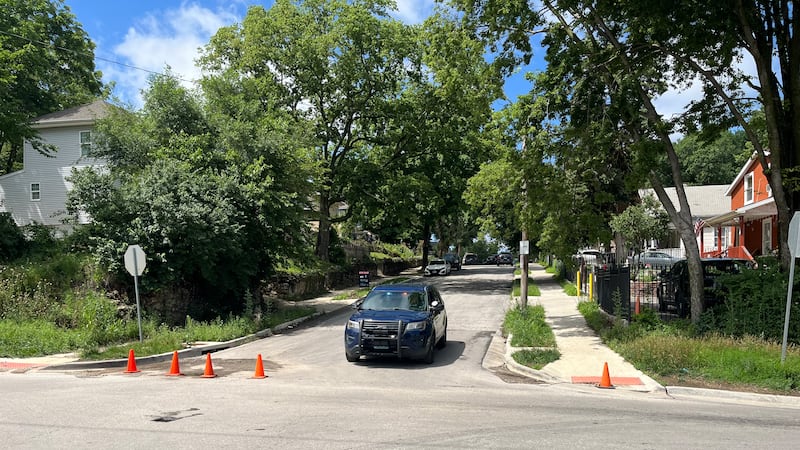KC Unsolved: 2004 Kansas hate crime murder remains unsolved despite $100,000 reward
LA CYGNE, Kan. (KCTV) – Esperanza Roberts is used to talking about her brother. In the 20 years since he was found dead, his story has been featured on Dateline and Unsolved Mysteries. Despite all the telling and retelling, she still chokes up.
“It’s been 20 years, but it still hurts like it was yesterday,” Roberts said. “Alonzo has missed out on a lot, you know? He’s missed out on having a life. We’ve missed out on seeing that.”
Her brother, Alonzo Brooks, was last seen at a large house party in La Cygne, Kansas in April of 2004. Alonzo was 23 years old. What followed was a series of strange developments.
A search by law enforcement turned up empty. Then, his family found him dead nearly a month later in the same area. How could that be? For years, his cause of death was unknown. In 2020, 16 years after his death, his body was exhumed and a new autopsy classified his death as a homicide. The FBI is investigating it as a hate crime. Four years ago, the U.S. Attorney for the District of Kansas offered a $100,000 reward for information leading to an arrest and conviction. It remains unclaimed
A PLAYFUL AND LIGHTHEARTED YOUNG MAN
Alonzo Brooks was the youngest of five children. His brother was the oldest. Three girls were in the middle. Roberts re him as a kid always wanting to tag along.
“(He) followed us everywhere, everywhere we went. We had to, per our mom and dad, take him everywhere we went,” Roberts recalled with a laugh.

As he grew older, he was the fun uncle to their kids, frequently helping out to babysit. Occasionally, Roberts said with a chuckle, he’d be the mean uncle by enforcing rules like bedtime.
“(He was) playful, liked to joke,” Roberts described.
Alonzo grew up in Topeka then later moved to Gardner. He was living with his mom and working as a custodian. He had a younger brother from his mom’s second marriage. The three people he met up with at the party were closer to his brother’s age. Roberts said Alonzo played football with them in the town’s park. She intentionally avoided calling them friends of his, because the person who drove Alonzo to the party left without him.
“If you’re a friend, you don’t leave your friend,” Roberts said. “There’s been several different stories of what happened, why he was left.”
He didn’t make it home that night. He didn’t make it home ever. The party -- on April 3, 2004 -- is the last place anyone who has spoken publicly has itted seeing him alive.
‘EVERYONE KNEW THAT SOMETHING WAS WRONG’
The day after the party, Roberts got a call from her mother.
“I that day so vividly. I was preparing for my daughter’s birthday,” she said.
She was in a store, shopping. It was late afternoon or early evening. She doesn’t recall the exact time, but she re what her mom said.
“She calls me and says, ‘Your brother didn’t come home.’ And I’m like, ‘What do you mean?’ She said, ‘He went to a party and he’s not home yet.’”
Roberts had a bad feeling but suggested her mom call around to his friends and check back with her in a couple of hours. The person who drove him to the party told Alonzo’s mom where the party was. The farmhouse was just east of La Cygne’s city limits. It’s a small town by many people’s standards. At the time, approximately 1,000 people lived there.
“My husband and Alonzo’s best friend drove out there and kind of looked around, didn’t see anything,” she continued.
Roberts said her mom had ed local law enforcement to file a missing persons report, but they told her, because he was an adult, they wouldn’t take a report until he’d been gone for 48 hours. A larger group of family and friends made the one-hour drive to La Cygne. They asked if anyone had seen Alonzo or heard anything. They asked if they could hang flyers.
“They were met with some resistance for sure,” Roberts said. “But there were a few people that helped.”

According to reports at the time, the Linn County Sheriff’s Office conducted a search soon after in the area around the farmhouse and in parts of nearby Middle Creek. The Kansas Bureau of Investigation was called in to assist. Then, the FBI was called to assist. There were concerns that foul play was involved and that Alonzo’s race may have played a role. His father was Black. His mother is Hispanic.
The law enforcement search came up empty. His family found him less than a month later after organizing a search party of their own.
When U.S. Attorney Stephen McAllister ordered the case re-opened years later, a news release described what the family found.
“They began on the road near the farmhouse and walked the two branches of Middle Creek. In just under an hour, they found Alonzo’s body, partially on top of a pile of brush and branches in the creek,” the release read.
Roberts was there that day. She saw his body. She re her shock and disgust.
“I think there’s no way if they did an extensive search that they would have missed him,” she said. “(It was) horrible to have had trust and faith in law enforcement for them to not find him, but relief that we did and relief that we could bring him home and bury him.
The autopsy that followed listed his cause of death as undetermined. Leads dried up.
The investigation went dormant until the U.S. Attorney for the District of Kansas stepped in 15 years later. Stephen McAllister was appointed U.S. Attorney in 2018 after being nominated by then-President Donald Trump. He’d previously taught law at the University of Kansas. He instructed the FBI to re-open the case and start over.
“I have stood under the trees on the bank of Middle Creek where Alonzo’s body was found,” McAllister said when he announced re-opening the case. “It is a quiet place of profound sadness to one who knows its history, but no answers are there. I am convinced, however, that there are people who know the answers, people who have been keeping terrible secrets all these years and bearing a horrible burden. We are asking one or more of them to come forward now and to lay down that burden at last, so that we can ease a family’s suffering, and serve the cause of justice.”
‘TWO TROUBLING FACTS WERE INDISPUTABLE’
Special agent Leena Ramana was assigned to the case when the FBI re-opened it in 2019, 15 years after his death. She reviewed past interviews and did new ones.
“The initial interviews that were conducted had some of the party goers talking about racial slurs being used,” Ramana said.
She estimated there were 100 people at the party, possibly more. Alonzo was one of only three Black people at the party. He may have been the only one there as the night wore on. Word spreads fast in a town like La Cygne. Investigators heard numerous rumors leading them to believe they had a hate crime on their hands.
“Some said Brooks may have flirted with a girl, some said drunken white men wanted to fight an African-American male, and some said racist whites simply resented Brooks’ presence,” a 2020 news release from McCallister’s office read. “After the party, two troubling facts were indisputable: Alonzo could not be found; and no one who attended the party would it to knowing what happened to him.”
BODY EXHUMED
In 2020, Alonzo’s body was exhumed from his grave site in Topeka. It was sent to Dover Air Force Base for examination by the Armed Forces Medical Examiner who received assistance from forensic pathologists. A 2021 FBI news release referred to “injuries to parts of Brooks’ body that the examiner concluded are inconsistent with normal patterns of decomposition.”
“From my understanding, the forensic anthropologist, he was able to review not only the body that we had brought to him and the medical examiner but review the photographs and the insects and the landscape around Alonso’s body when it was recovered, and use that in for his consideration,” Ramana explained. “From that, they ruled that Alonzo’s death was a homicide.”
Ramana would not say how investigators believe he died or even whether a determination was made on the manner of death. She did, however, have answers to the question of why he wasn’t found by law enforcement before his family found his body.
She too was curious how the family’s search succeeded after the law enforcement search failed.
“One of the things we first went back to look at was the rainfall that occurred in the area at that time, and the rise in the fall of middle Creek and how that responded,” Ramana said. “It’s possible, with the rainfall that had occurred, that that creek rose and fell on a couple of different occasions, which would allow for anything that was trapped under the really large brush piles to become dislodged and rise to the surface.”
‘YOU‘RE OLDER NOW’
In 2020, the FBI announced a $100,000 reward for information leading to the arrest, prosecution and conviction of those responsible for Alonzo’s death. It is substantially higher than the rewards offered for homicides in the area. Four years later, there is no indication anyone has provided ample information to claim it.
The age of time can be discouraging, but in one way it brings fresh hope. Many of the people at the party in 2004 were underaged. The hope is that as adults, they will be more forthright.
“You’re older now,” Roberts said, addressing the people still hiding what they know. “Your parents can’t do anything to you. Tell us what happened if you know something.”
Ramana said even something small, like the names of other people who were there, could help.
“They may assume that we already knew that but it’s a new name and another individual that we can speak to,” she said.
When the U.S. attorney re-opened the case, Alonzo’s spoke to KCTV5 indicating he was hopeful. He has since died. But the hope is still alive.
“I still feel that there are things that we can do and people we can talk to and advancements and technology that we don’t even have right now that may be the key to solving all of this,” Ramana said.
For Roberts, there’s that and something more basic.
“We just have faith,” she said. “We have faith that eventually, we’re going to find out what happened and we will get some justice.”
$100,000 REWARD
The FBI is offering a $100,000 reward for information leading to the arrest and conviction of anyone responsible for Alonzo’s death. You can call the FBI at 816-512-8200 or the anonymous Greater KC Crimestoppers Hotline at 816-474-TIPS. You can also submit a tip online at tips.FBI.gov or through the Crimestoppers online tip submission form.
Copyright 2024 KCTV. All rights reserved.









